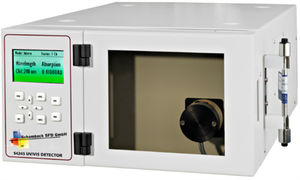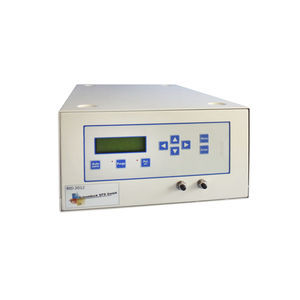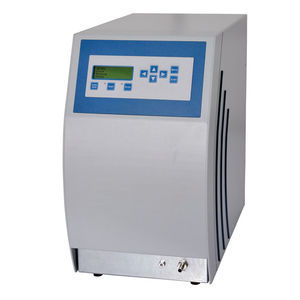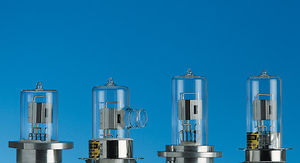
- Laboratory
- Physico-chemical analysis
- Gas chromatography detector
- Schambeck SFD GmbH
HPLC chromatography detector ZAM 4000gasevaporative light scatteringrefractive index
Add to favorites
Compare this product
Characteristics
- Type
- gas, HPLC
- Technology
- refractive index, evaporative light scattering, UV
Description
The Evaporative Light Scattering Detector ZAM 4000 is an universal detector for HPLC. It is used to analyze components which do not have UV absorption, cannot be separated with an isocratic solvent and must use a gradient elution, which cannot be used with a refractive index detector. Only mobile phases without any buffers should be used.
It differs from the ZAM 3000 evaporative light scattering detector in the gas flow regulation of the additive gas. The ZAM 3000 utilizes a mass flow controller which is replaced by a regulation valve in the ZAM 4000 instruments. As the additive gas flow is not changed in most applications this results in a lower price for the ZAM 4000. In contrast to other evaporative light scattering detectors all parts of the the ZAM 4000 detectors which come in contact with the sample are made of PTFE or glass. By this this parts are inert to common solvents and easy to clean. One more advantage of glass parts is the fact that contammination can be located easily. The nebulization takes place in the glass nebulization chamber. From here the aerosol is guided into the evaporation chamber which is made of glass, too. The solvent evaporated and only small sample particles reach the detection chamber. Here this particles pass a beam of bright light. By this the light is scatterd in all directions. The scattered light is detected by a photomultiplier in an angel of 120°. The signal is amplified and exported as the detector signal. All parts which get in contact with the sample can be un-mounted and cleaned easily.
Catalogs
No catalogs are available for this product.
See all of Schambeck SFD GmbH‘s catalogsRelated Searches
- Analysis software
- Control software
- Windows software
- Automatic sampler
- Chromatography column
- Chromatography detector
- Chromatography software
- Chromatography pump
- Degassing module
- Refractive index chromatography detector
- Gas chromatography detector
- HPLC autosampler
- PDA chromatography detector
- UV/VIS chromatography detector
- Isocratic chromatography pump
- Quaternary chromatography pump
- GPC/SEC chromatography detector
- UV chromatography detector
- HPLC degassing module
*Prices are pre-tax. They exclude delivery charges and customs duties and do not include additional charges for installation or activation options. Prices are indicative only and may vary by country, with changes to the cost of raw materials and exchange rates.














